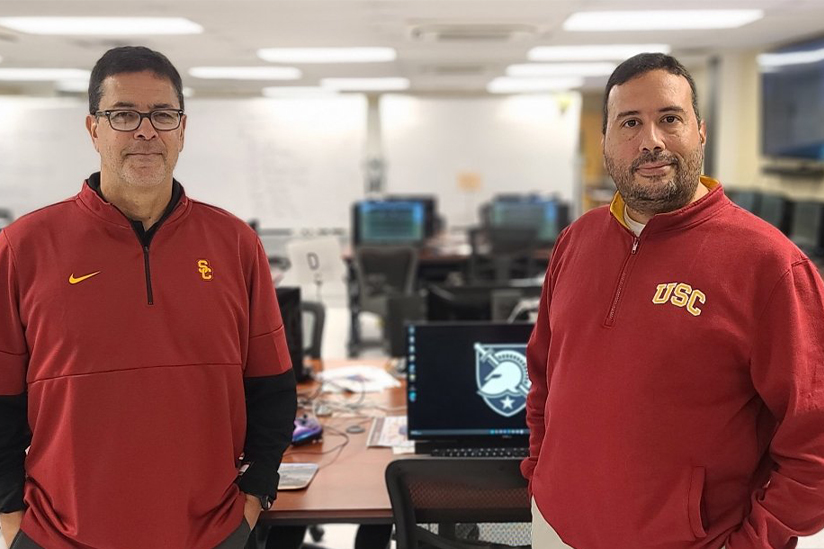Victor Castro MEd ’19 and Richard DiNinni EdD ’22 are creating new educational programs at West Point that blend virtual reality and game-based training technologies with research-based pedagogy.
Through a partnership dating back nearly a decade, two USC Rossier School of Education graduates have contributed to a transformation in how U.S. Military Academy (USMA) cadets are taught, introducing guided experiential learning initiatives into the high-stakes training environment.
Victor Castro MEd ’19 and Richard DiNinni EdD ’22 have spearheaded programs that blend virtual reality and game-based training technologies with research-based pedagogy, bringing classroom lessons to life as cadets apply newly acquired concepts and skills in leadership, marksmanship and navigation to real-world challenges in simulated settings.
“Whether it’s game-based on a laptop or handheld, or using virtual or augmented reality, we’re taking the real-world space and overlaying information that will support the cadets’ learning during the training event,” DiNinni explains.
DiNinni, an East Coast-based project director with the USC Institute for Creative Technologies, has for the past eight years been a visiting scientist at West Point. In that role, he spends much of his time collaborating with Castro, a two-time combat veteran now in a civilian position as deputy director and training instructor at the West Point Simulation Center, which uses modeling and simulations technology to create authentic learning environments. Drawing on their USC Rossier experience—DiNinni as a graduate of the Doctor of Education in Organizational Change and Leadership program and Castro of the Master of Education in Learning Design and Technology program—they explore how new educational technologies, combined with evidence-based practice, can support cadet training.
